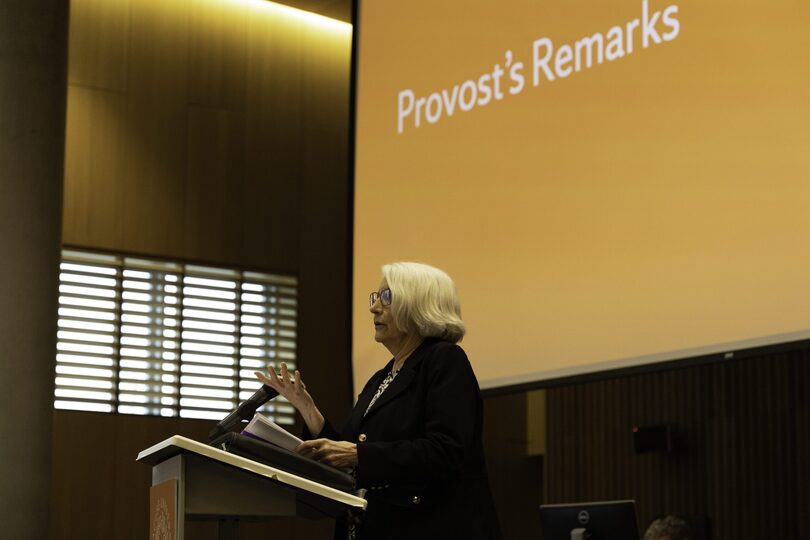Provost says engagement critical to portfolio review: ‘No predetermined outcome’

In a campus-wide email, Provost Lois Agnew said engagement in SU’s academic portfolio review is “critical.” She also emphasized program outcomes are not a “unilateral decision,” and hopes students, faculty and staff engage in the process. Solange Jain | Senior Staff Photographer
Get the latest Syracuse news delivered right to your inbox.
Subscribe to our newsletter here.
Provost Lois Agnew said campus engagement in Syracuse University’s ongoing academic portfolio review is “critical,” in a Tuesday campus-wide email.
Agnew said the outcome of each program is not a “unilateral decision,” as the program review “honors and seeks broad community input.” She said the university intends to align resources with SU’s mission and students’ futures, which does not necessarily mean majors will be cut.
“Our goal is to ensure Syracuse University’s academic portfolio remains vibrant, relevant and sustainable by making thoughtful decisions about where to invest resources for maximum impact,” Agnew said. “This means being honest about programs that may no longer serve students’ needs while creatively reimagining and strengthening others.”
The review, first announced in an Aug 20. campus-wide email, re-evaluates programs across SU schools and colleges. SU paused admission to 20 majors in the College of Arts and Sciences without faculty input as part of the review.
Agnew said she hoped to “dispel some rumors” in the email. She said the paused programs will not admit new students while they’re under review. However, a pause does not remove a program from the catalog or stop its courses from being taught, the email states.
Continuing to admit students into programs with “uncertain futures” would be “irresponsible,” Agnew said. A pause allows the evaluation of programs’ long-term success.
“Some programs will emerge with renewed energy and resources, others will transform through re-envisioning or merger, and yes, some low-enrolled programs (not whole departments) may be phased out—always with clear pathways for current students to complete degrees and respect for faculty and staff contributions,” Agnew said.
The review is not an assessment of departments or individuals with a “predetermined outcome,” she said. Recommendations will come from both “genuine consultation” and number analysis, including student interest or enrollment data.
While the process is not based “solely on numbers,” some majors only have one declared student, Agnew said. She recommends that students, faculty and staff members engage in the portfolio review process.
“Together, we can navigate these challenges and emerge stronger, but ‘together’ only works when we all show up—thank you for your commitment and participation in shaping our academic future,” Agnew said.





